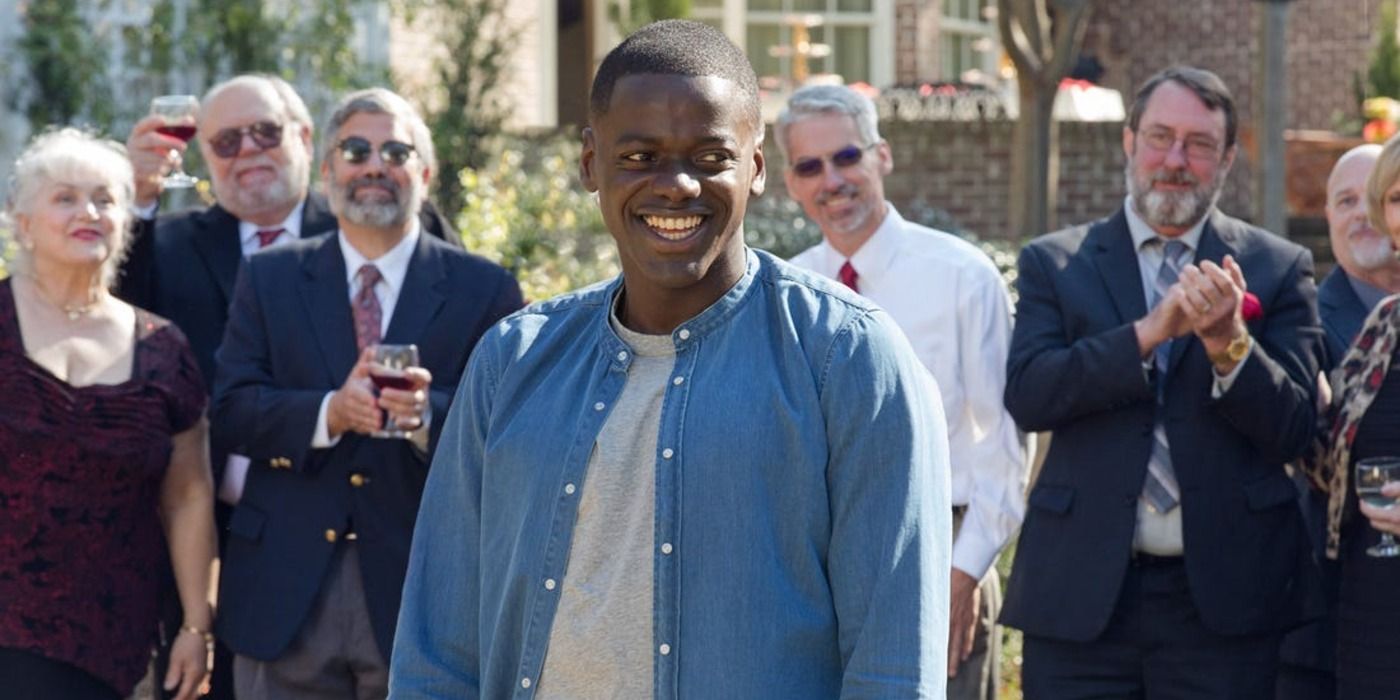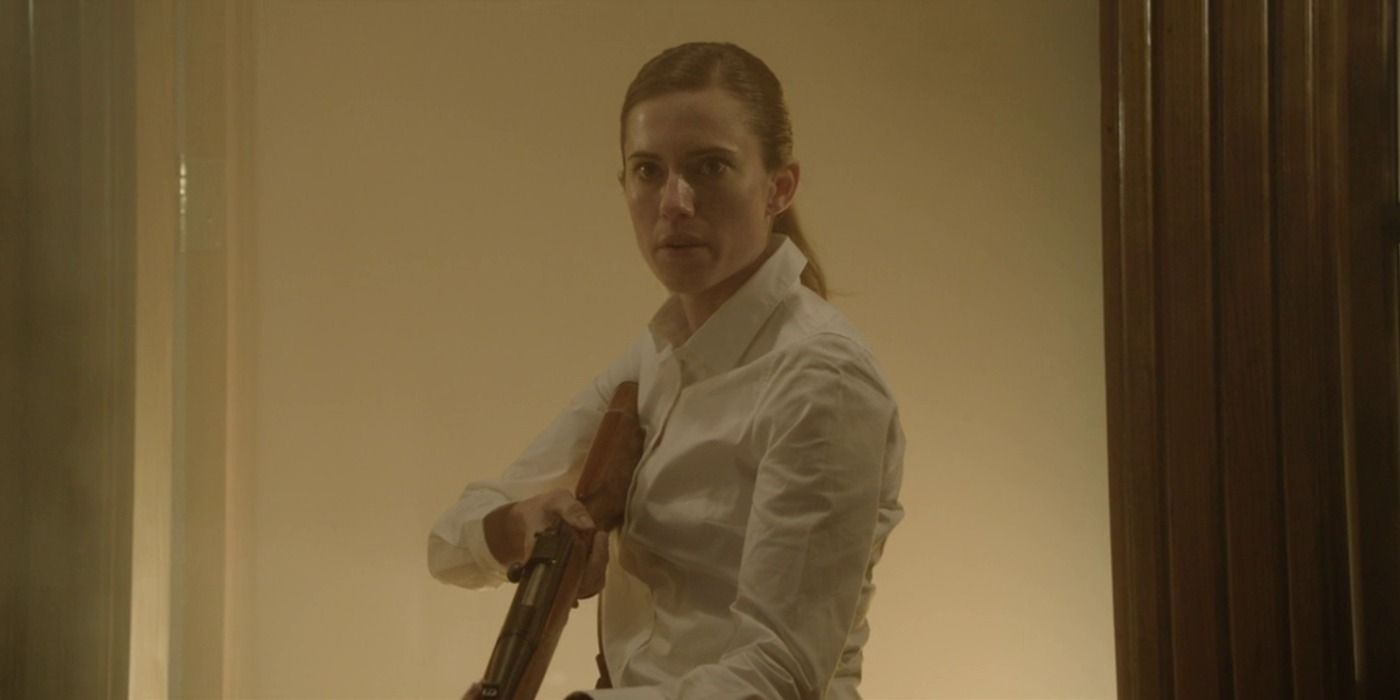
With his 2017 directorial debut Get Out, Jordan Peele revolutionized contemporary horror by tackling racism head-on without sacrificing scares. Peele himself considers the movie, which stars Daniel Kaluuya as a photographer on his way to meet his white girlfriend's family for the first time, a social thriller. This means Get Out hinges its suspenseful narrative on the experiences of oppressed people - specifically African Americans. An encounter Kaluuya's character Chris Washington already dreads quickly turns sinister as he finds himself in the middle of a wealthy, white conspiracy to abduct and subjugate black people. This existentially terrifying scenario might have landed very differently with audiences if Peele's original ending ever made it to theatres.
Get Out includes one of the most unique representations of white supremacy on the screen, and Peele rightfully won an Oscar in 2018 for his original screenplay. Chris's girlfriend Rose Armitage, played by Allison Williams, seduces and then lures young, healthy black people to her family's vast estate in Upstate New York, where the victims are literally put on the auction block. It turns out the Armitages use a combination of neurosurgery and hypnotherapy to transplant the highest bidder's consciousness into the body of their latest target.
RELATED: Reasons We Hope HBO Makes Season 4 Of True Detective
This heinous Armitage family tradition harkens back to the days of chattel slavery, and these plot points connect the dots between America's slave-holding past and present - where people of color still contend with egregious levels of racialized violence and harm. Instead of the KKK or the alt-right, the monsters in Get Out are members of a white, upper-middle-class liberal family. At one point, Bradley Whitford's character Dean Armitage even brags to Chris, "By the way, I would have voted for Obama for a third term if I could." With these characterizations, Peele stresses the toxic consequences of declaring America "post-racial" after the election of President Barack Obama. Peele explained on Buzzfeed's Another Round podcast, "That’s what the movie was meant to address. These are all clues, if you don’t already know, that racism isn’t over."

The clues are plentiful, like the Armitage's black housekeeper Georgina, groundskeeper Walter, and LaKeith's Stanfield's enslaved and sex trafficked character Andre, who repeatedly tells Chris to get out in one of the film's most harrowing scenes. Chris withstands the emotional and physical traumas inflicted upon him by his kidnappers, including a horrific hypnosis session with mom Missy Armitage (Catherine Keener) that prepares him for the Sunken Place - the void Chris's consciousness is pushed into to make way for his occupier. Chris is auctioned off to a blind art dealer played by Stephen Root, but he's able to save himself from the Sunken Place by clogging his ears with stuffing from the chair he's strapped into.
Chris frees himself from his restraints and fights like hell to make sure the Armitages never terrorize another black person again. The final 20 minutes of Get Out moves quickly and anxiously from one bloody, violent confrontation to the next. Chris bludgeons, impales, and punches his way to safety. This culminates in a final showdown with Rose along the estate's meandering driveway. As Chris battles the woman who claimed to love him hours earlier, a police cruiser pulls up on the scene. Chris's friend Rod, a TSA agent played by Lil Rel Howery, exits the vehicle, signaling an end to Chris's ordeal. They drive off together, leaving Rose to bleed out in the driveway.
This ending is very different from the initial closing sequence Peele included in the first cut of Get Out. Instead of Rod, an actual police officer drives up as Chris strangles Rose. Chris is ultimately arrested and incarcerated for defending himself against the Armitages. Based on early screenings of the film, audiences found this ending too bleak, and Peele felt like white moviegoers wouldn't know what to do with the imagery of Chris behind bars. Peele also felt the prevalent narratives about institutional oppression and white supremacy were changing in America. The amount of public dialogue about police brutality and criminal justice reform was more widespread than before he wrote Get Out.
"It was a much more woke time," Peele told Buzzfeed. The new ending is far from a happy one, but it frames Chris as a hero who prevails, as a protagonist audiences can rally behind. It gives him agency and control. While Kaluuya loves the original ending and its powerful connotations, he told Vulture he finds the altered ending very honest. "He has to go out there even after he’s experienced all this racism, and people expect you to see the world in the same way when they haven’t experienced something like that," Kaluuya explained.
With his revised conclusion, Peele forces everyone watching to engage with Chris's feelings about the approaching police car. Chris knows, because he is black, he's going to jail when he sees the flashing lights. As the camera focuses on the TSA logo on the side of the car and then moves to Rod's face, the tense moment gives way to relief - the same relief Chris experiences seeing his friend. This kind of storytelling technique shows what's at stake for Chris through emotional appeals and phenomenal acting, not through lecture-like learning moments that might fall on deaf ears. Marcus Henderson, who plays Walter, insists the new ending in Get Out also gives black audiences "a break, and I think that’s why we enjoyed it so much, because we want it so badly."

